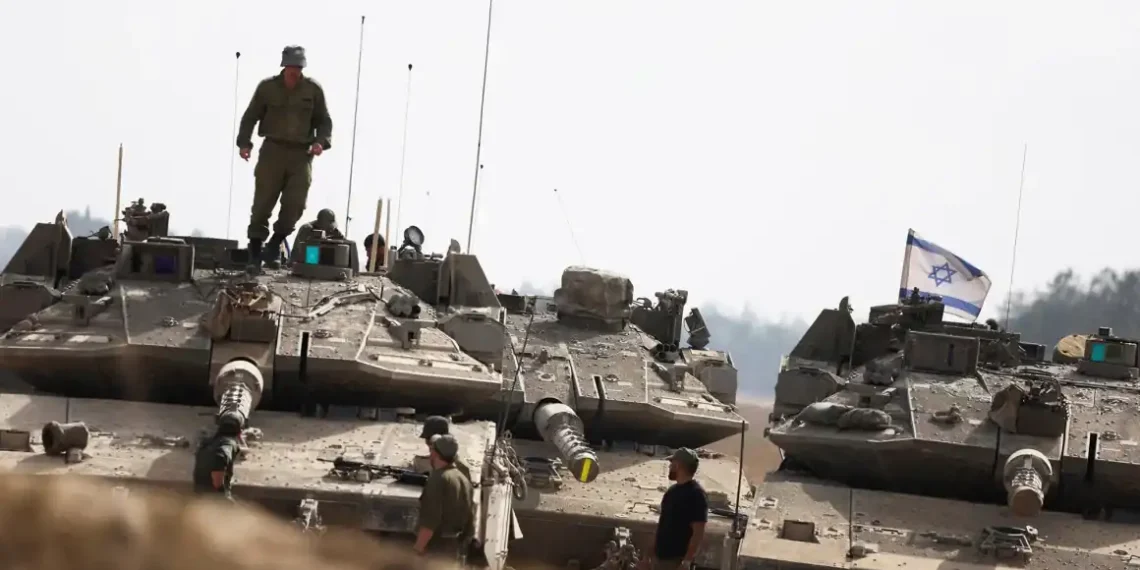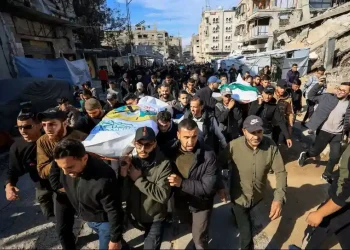UK, France, and Canada Threaten Sanctions Over Israel’s Renewed Gaza Offensive
International outrage grows as humanitarian crisis worsens in Gaza
As Israel pushes forward with a new ground offensive in Gaza, the leaders of the United Kingdom, France, and Canada are warning of possible sanctions if the military campaign continues and humanitarian aid remains blocked.
In a joint statement Monday, the three countries demanded that Israel halt its latest military operation and allow full access for humanitarian relief. If not, they say “concrete actions,” including targeted sanctions, will follow.
Ground Offensive Escalates After Failed Ceasefire Talks
The Israeli military launched its renewed campaign, dubbed “Gideon’s Chariots,” just as former U.S. President Donald Trump left the region without securing a ceasefire or hostage release deal. Israeli troops have since advanced into both northern and southern parts of the Gaza Strip following days of heavy airstrikes.
On Monday, Israeli Prime Minister Benjamin Netanyahu declared that Israel intends to “take control of the entire Gaza Strip.” The Israel Defense Forces (IDF) say the goal is to defeat Hamas and free the remaining Israeli hostages.
But the toll has been staggering.
- More than 400 Palestinians have been killed and over 1,000 injured since last Thursday, according to Gaza health officials.
- Entire families have been wiped out in overnight strikes, including 49 people killed just between Monday and Tuesday.
- The last hospital in northern Gaza has reportedly shut down amid the onslaught.
Since the war began in October 2023, over 53,000 people have died in Gaza, the majority of them women and children.
Gaza Becomes a War Zone
About 71% of Gaza’s territory is now designated a militarized zone or under evacuation orders, leaving much of the population without safe shelter. Nearly half a million people are now facing starvation, according to food security projections.
Israel’s partial lifting of its blockade on food aid has done little to ease concerns. On Monday, just five aid trucks were allowed through the Kerem Shalom crossing—a mere fraction of the 500 trucks needed daily, according to Gaza officials.
UN aid chief Tom Fletcher called the effort a “drop in the ocean,” warning that famine is imminent without immediate action.
French Foreign Minister Jean-Noël Barrot echoed that sentiment, calling Israel’s easing of aid access “totally insufficient.”
Allies Grow Impatient
Pressure is now coming from Israel’s closest allies.
Netanyahu admitted Monday that his government risks losing international support—even from long-time pro-Israel U.S. lawmakers—if images of starving children continue to circulate.
“We are giving you weapons and political backing,” Netanyahu quoted U.S. senators as saying, “but we cannot support mass starvation.”
The joint warning from the UK, France, and Canada was followed by another statement from 23 foreign ministers, including those from Germany, Italy, and the EU, urging Israel to immediately allow unrestricted humanitarian access.
They warned that food and medicine stocks are depleted and that Gaza’s population faces mass starvation.
Controversy Over New U.S.-Backed Aid Mechanism
Amid mounting criticism, a new organization—the Gaza Humanitarian Foundation (GHF)—is preparing to oversee aid deliveries. Backed by the U.S. and approved by Israel, the foundation aims to prevent aid from falling into Hamas’ hands.
But critics, including UN officials, say the plan would militarize humanitarian aid and potentially encourage forced displacement of civilians from northern Gaza.
UNICEF spokesperson James Elder condemned the plan as “unworkable,” saying Israel, as the occupying power, has a legal duty to ensure aid reaches civilians.
Tom Fletcher added bluntly: “We already have a plan. Let’s not waste time.”
Trump’s Role and Reactions
Former President Trump visited Gulf nations last week, including Qatar, where his team was involved in ceasefire negotiations. While he didn’t visit Israel, Trump insisted the trip was good for the region and claimed the U.S. would soon “take care of” the humanitarian crisis in Gaza.
He also stirred controversy by suggesting the U.S. should “take” Gaza and turn it into a “freedom zone.”
U.S. Special Envoy Steve Witkoff said the real problem with aid is logistical, citing dangerous conditions on the ground.
Where Do Ceasefire Talks Stand?
Negotiations have resumed in Doha, Qatar, but progress remains murky.
Hamas initially indicated it was willing to release a handful of hostages in exchange for a 60-day ceasefire and the release of Palestinian prisoners. However, within hours, another Hamas spokesperson denied that agreement, saying there would be no hostage release unless Israel commits to a full cessation of hostilities.
Israel has said it is open to ending the war—but only if Hamas surrenders, a demand that analysts say is unlikely to be accepted.
Final Thoughts
With the death toll rising, aid still limited, and diplomatic tensions running high, the situation in Gaza remains on a knife’s edge. Whether the international community’s pressure will alter Israel’s military course—or Hamas’ negotiating stance—remains uncertain.
This article was rewritten by JournosNews.com based on verified reporting from trusted sources. The content has been independently reviewed, fact-checked, and edited for accuracy, neutrality, tone, and global readability in accordance with Google News and AdSense standards.
All opinions, quotes, or statements from contributors, experts, or sourced organizations do not necessarily reflect the views of JournosNews.com. JournosNews.com maintains full editorial independence from any external funders, sponsors, or organizations.
Stay informed with JournosNews.com — your trusted source for verified global reporting and in-depth analysis. Follow us on Google News, BlueSky, and X for real-time updates.














